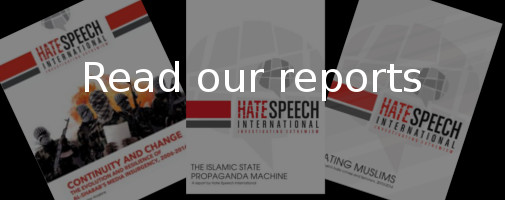“The terrorist threat in the EU remains strong and varied,” Europol notes in its 2013 Terrorism Situation and Trend Report. There were 17 deaths as a result of terrorist activity of all types in 2012, the majority of them the result of two major terrorist incidents: a bomb attack at Burgas airport in Bulgaria, and a series of three attacks committed by a solo terrorist in Toulouse and Montauban in France.
Both terrorism incidents were connected with extreme Islamism. However, other forms of terrorism and extremism remain a threat, including terrorism from separatists and separatist movements, left-wing extremists (such as anarchist terror cells), right-wing extremists and single-case activists. We have also seen several cases of political violence motivated by a syncretic mixture of different ideas, including xenophobia and conspiracy theories not easily placed on the extreme right or left. One example is the Swedish serial shooter Peter Mangs, another the Polish chemistry professor whom Polish authorities accuse of plotting to attack the parliament in Warsaw.
In other words, different forms of political extremism are leading to terrorism.
And not just to terrorism. Extremism is also about hate speech and hate crime. In the German Annual Report on the Protection of the Constitution, 2011, we read of 20 incidents of arson and no less than 640 cases of battery/grievous harm, all committed by right-wing extremists with a political motive in 2011 alone. The German term alltägliche Terror – every-day terror – certainly hits the mark.
Furthermore, Europe has seen a deep-going economic crisis which has already been exploited by individuals who seek to channel frustration and aggression for their own gain. They offer “simple” alternative explanations for one’s misfortunes, with minority groups getting the blame. Across Europe, we see anti-Semitism, anti-Ziganism and anti-Muslim ideas gathering support. Simultaneously, we observe worrying segregation in a number of European cities, leading to ghettoization, social problems, crime and recruitment opportunities for extremist Islamist groups.
In the summer of 2010, the Secretary General of the Council of Europe, Thorbjørn Jagland, appointed a “Group of Eminent Persons” chaired by former German Foreign Minister Joschka Fischer. The group was asked to investigate the “challenges arising from the resurgence of intolerance and discrimination in Europe”. The report “Living Together: Combining Diversity and Freedom in 21st Century Europe” was published 11 May 2011, just a few weeks prior to the terror attacks in Norway on 22 July 2011, the deadliest linked to right-wing extremism in Europe for more than three decades. The report describes a political and social shift across Europe, and a wave of radical populism. Indeed, radical and extremist right-wing groups are gaining support, even attracting new voters from different groups in society.
The complexity and seriousness of the current political and economic situation in Europe should not be taken lightly.
Hate speech often leads to acts of political violence, yet freedom of expression is often invoked in defence of hate speech. It’s a dubious defence, morally speaking, but it does create a liberal paradox, since everyone’s freedom of expression must be protected. The societal response to terrorism, extremism, hate speech and hate crime in Europe must not be to impose a higher degree of governmental control over who says what and where. Even trying to stop all outbursts of political violence remains – realistically speaking – a Utopian goal.
How, then, do we address this liberal paradox? We believe that Europe must implement a policy of containment – through the combined efforts of governments, law enforcement, NGOs and the media. Our independent project aims at strengthening one of these building blocks: the media. Capacity-building measures for media organizations are crucial. The media certainly play a central role, not only in revealing political extremism and bringing it forth in debate, and not merely in challenging hate speech and exposing totalitarian ideas, but also in exploring the reasons and mechanisms behind radicalization.
Hate Speech International is an initiative to cover extremism while creating a network of journalists committed to the topic and continuously expanding coverage capacities.

